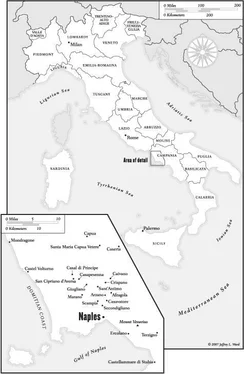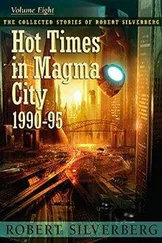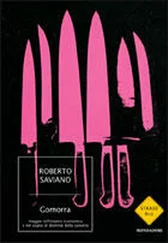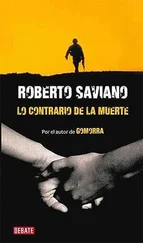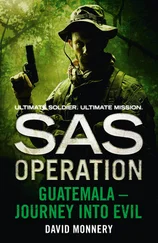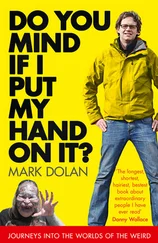Roberto Saviano - Gomorrah - A Personal Journey into the Violent International Empire of Naples’ Organized Crime System
Здесь есть возможность читать онлайн «Roberto Saviano - Gomorrah - A Personal Journey into the Violent International Empire of Naples’ Organized Crime System» весь текст электронной книги совершенно бесплатно (целиком полную версию без сокращений). В некоторых случаях можно слушать аудио, скачать через торрент в формате fb2 и присутствует краткое содержание. Жанр: Старинная литература, на английском языке. Описание произведения, (предисловие) а так же отзывы посетителей доступны на портале библиотеки ЛибКат.
- Название:Gomorrah: A Personal Journey into the Violent International Empire of Naples’ Organized Crime System
- Автор:
- Жанр:
- Год:неизвестен
- ISBN:нет данных
- Рейтинг книги:5 / 5. Голосов: 1
-
Избранное:Добавить в избранное
- Отзывы:
-
Ваша оценка:
- 100
- 1
- 2
- 3
- 4
- 5
Gomorrah: A Personal Journey into the Violent International Empire of Naples’ Organized Crime System: краткое содержание, описание и аннотация
Предлагаем к чтению аннотацию, описание, краткое содержание или предисловие (зависит от того, что написал сам автор книги «Gomorrah: A Personal Journey into the Violent International Empire of Naples’ Organized Crime System»). Если вы не нашли необходимую информацию о книге — напишите в комментариях, мы постараемся отыскать её.
Gomorrah: A Personal Journey into the Violent International Empire of Naples’ Organized Crime System — читать онлайн бесплатно полную книгу (весь текст) целиком
Ниже представлен текст книги, разбитый по страницам. Система сохранения места последней прочитанной страницы, позволяет с удобством читать онлайн бесплатно книгу «Gomorrah: A Personal Journey into the Violent International Empire of Naples’ Organized Crime System», без необходимости каждый раз заново искать на чём Вы остановились. Поставьте закладку, и сможете в любой момент перейти на страницу, на которой закончили чтение.
Интервал:
Закладка:
I didn’t understand. I just didn’t understand. Xian intervened, in his usual soothing way.
“Pasquale’s helping us learn how to make the quality garments they don’t trust us with yet. We’re learning how to make clothes from him.”
After Xian’s explanation, the Minotaur attempted to justify the pistol:
“So … one of them popped up there once, right there, see, in the middle of the piazza, and fired on our car. Hit the motor and windshield wipers. If they’d wanted to, they could’ve bumped us off. But it was just a warning. If they try it again though, this time I’m ready.”
The Minotaur explained that the best technique when driving is to keep the pistol between your thighs. Putting it on the dashboard slows you down—you lose too much time grabbing it. The road to Terzigno is uphill, and I could smell the clutch burning. I was less afraid of a burst of submachine-gun fire than the recoil of the engine, which might make the pistol fire into the driver’s scrotum. We arrived without a hitch. As soon as the car came to a stop, Xian went and opened the trunk. Pasquale got out, looking like a balled-up Kleenex trying to flatten itself out. He came over to me and said:
“It’s the same story every time. Not even a fugitive hides like this … But it’s better they don’t see me in the car, or else …”
He sliced a finger across his neck. The factory was big, but not enormous. Xian had described it to me proudly. It belonged to him, but housed nine microfactories of nine Chinese entrepreneurs. It was like a chessboard inside: each factory had a square, with its own workers and benches. Xian had given each company the same amount of space as the factories in Las Vegas, and the contracts were auctioned off using the same method. He’d decided not to let children into the work zone and had organized the shifts as in Italian factories. What’s more, when they did work for other companies, they didn’t ask for cash up front. In short, Xian was becoming a serious player in the Italian fashion business.
Chinese factories in China were competing with Chinese factories in Italy. As a result Prato, Rome, and the Chinatowns of half of Italy were suffering terribly; they’d experienced such a quick boom that the collapse felt even more sudden. There was only one way for the Chinese factories in Italy to save themselves: they had to become fashion experts, capable of doing top-quality work. They had to learn from the Italians, from the Las Vegas factory owners, to go from being junk manufacturers to the brands’ trusted suppliers in southern Italy. They had to take the place of the Italian underground factories, appropriate their logic, workspaces, and language. They had to do the same work, but for a little less money and in a little less time.
Pasquale took some fabric out of a suitcase: a dress he was supposed to cut and sew in his factory. He did it here instead, on a table in front of a camera, his image projected onto a sheet hanging behind him. As he talked, a girl with a microphone translated into Chinese. This was his fifth lesson.
“You must take great care with the seams. The seam has to be light but not nonexistent.”
The Chinese triangle: San Giuseppe Vesuviano, Terzigno, Ottaviano. The hub of the Chinese clothing business. Everything that’s happening in the Chinese communities of Italy happened first in Terzigno. The first production cycles, the first quality manufacturing, as well as the first murders. This is where Wang Dingjm was killed. A forty-year-old immigrant who’d driven down from Rome for a party some other Chinese were throwing. They invited him, then shot him in the head. Wang was a snakehead—a scout—tied to the criminal cartels in Beijing that organize the clandestine entry of Chinese into Italy. Trafficking in humans, the snakeheads often clash with their clients. They promise a certain quantity and then they don’t deliver. Just as a drug dealer is killed when he keeps back a part of his earnings, a snakehead is killed when he cheats on his goods, on human beings. But it’s not just Mafiosi who die. On one of the factory doors was the photo of a young girl. Pretty face, pink cheeks, eyes so dark they seemed painted. It was hung exactly where one would traditionally expect the yellow face of Mao, but this was a picture of Zhang Xiangbi, a pregnant girl who had been killed a few years earlier. She used to work here. A mechanic from these parts had fancied her; she used to walk past his garage, and liking what he saw, he decided that was reason enough to have her. The Chinese work like dogs, they slither like snakes, they’re quieter than deaf-mutes, they’re not allowed any means of resistance or free will. Such is the axiom everyone—or almost everyone—bears in mind. But Zhang had resisted. She tried to escape when the mechanic came near her, but she couldn’t report him. She was Chinese, and every sign of visibility was denied her. The next time the man didn’t take no for an answer. He beat and kicked her until she fainted, then slit her throat and threw her body in a deep well, where it remained for days, bloated with water. Pasquale knew this story and was devastated by it. Every time he went to give a lesson, he made sure to go over to Zhang’s brother and ask how he was, see if he needed anything. But he always got the same response: “Nothing, thanks.”
Pasquale and I became close. He was like a prophet when he spoke about fabric and was overly fastidious in clothing stores; it was impossible even to go for a stroll with him because he’d plant himself in front of every shop window and criticize the cut of a jacket or feel ashamed for the tailor who’d designed such a skirt. He could predict the longevity of a particular style of pants, jacket, or dress, and the exact number of washings before the fabric would start to sag. Pasquale initiated me into the complicated world of textiles. I even started going to his home. His family—his wife and three children—made me happy. They were always busy without ever being frenetic. That evening the smaller children were running around the house barefoot as usual, but without making a racket. Pasquale had turned on the television and was flipping channels, but all of a sudden he froze. He squinted at the screen, as if he were nearsighted, though he could see perfectly well. No one was talking, but the silence became more intense. His wife, Luisa, must have sensed something because she went over to the television and clasped her hand over her mouth, as if she’d just witnessed something terrible and were holding back a scream. On TV Angelina Jolie was treading the red carpet at the Oscars, dressed in a gorgeous garment. One of those custom-made outfits that Italian designers fall over each other to offer to the stars. An outfit that Pasquale had made in an underground factory in Arzano. All they’d said to him was “This one’s going to America.” Pasquale had worked on hundreds of outfits going to America, but that white suit was something else. He still remembered all the measurements. The cut of the neck, the circumference of the wrists. And the pants. He’d run his hands inside the legs and could still picture the naked body that every tailor forms in his mind—not an erotic figure but one defined by the curves of muscles, the ceramics of bones. A body to dress, a meditation of muscle, bone, and bearing. Pasquale still remembered the day he’d gone to the port to pick up the fabric. They’d commissioned three suits from him, without saying anything else. They knew whom they were for, but no one had told Pasquale.
In Japan the tailor of the bride to the heir to the throne had had a state reception given in his honor. A Berlin newspaper had dedicated six pages to the tailor of Germany’s first woman chancellor, pages that spoke of craftsmanship, imagination, and elegance. Pasquale was filled with rage, a rage that it’s impossible to express. And yet satisfaction is a right, and merit deserves recognition. Deep in his gut he knew he’d done a superb job and he wanted to be able to say so. He knew he deserved something more. But no one had said a word to him. He’d discovered it by accident, by mistake. His rage was an end in itself, justified but pointless. He couldn’t tell anyone, couldn’t even whisper as he sat looking at the newspaper the next morning. He couldn’t say, “I made that suit.” No one would have believed that Angelina Jolie would go to the Academy Awards wearing an outfit made in Arzano, by Pasquale. The best and the worst. Millions of dollars and 600 euros a month. Neither Angelina Jolie nor the designer could have known. When everything possible has been done, when talent, skill, ability, and commitment are fused in a single act, when all this isn’t enough to change anything, then you just want to lie down, stretch out on nothing, in nothing. To vanish slowly, let the minutes wash over you, sink into them as if they were quicksand. To do nothing but breathe. Besides, nothing will change things, not even an outfit for Angelina Jolie at the Oscars.
Читать дальшеИнтервал:
Закладка:
Похожие книги на «Gomorrah: A Personal Journey into the Violent International Empire of Naples’ Organized Crime System»
Представляем Вашему вниманию похожие книги на «Gomorrah: A Personal Journey into the Violent International Empire of Naples’ Organized Crime System» списком для выбора. Мы отобрали схожую по названию и смыслу литературу в надежде предоставить читателям больше вариантов отыскать новые, интересные, ещё непрочитанные произведения.
Обсуждение, отзывы о книге «Gomorrah: A Personal Journey into the Violent International Empire of Naples’ Organized Crime System» и просто собственные мнения читателей. Оставьте ваши комментарии, напишите, что Вы думаете о произведении, его смысле или главных героях. Укажите что конкретно понравилось, а что нет, и почему Вы так считаете.
